
Millstätter See: The Jewel of Carinthia
Nestled in the heart of Carinthia, Austria, Millstätter See is a stunning alpine lake that offers a perfect blend of natural beauty and cultural richness. Surrounded by rolling hills and lush forests, the lake's crystal-clear waters reflect the serene landscape, making it a picturesque spot for visitors seeking tranquility and adventure alike. Millstätter See is ideal for water activities such as swimming, boating, and fishing. The lake's pristine shores are lined with charming villages and cozy cafes where you can enjoy local Austrian cuisine. For those who love hiking, the surrounding mountains provide numerous trails with breathtaking views of the lake and beyond. In addition to its natural attractions, Millstätter See is steeped in history. Explore the medieval Millstatt Abbey, a cultural landmark that offers a glimpse into the region's past. The area also hosts various festivals and events throughout the year, celebrating local traditions and arts. Whether you're looking to relax by the water, explore scenic trails, or immerse yourself in local culture, Millstätter See offers a delightful escape in one of Austria's most beautiful regions.
Local tips in Millstätter See
- Visit in late spring or early autumn to avoid the summer crowds and enjoy mild weather.
- Rent a bike to explore the scenic paths around the lake.
- Try the local fish dishes at lakeside restaurants for an authentic culinary experience.
- Take a boat tour to see the lake from a different perspective and learn about its history.
- Check the local event calendar for festivals and cultural events during your visit.
Millstätter See: The Jewel of Carinthia
Nestled in the heart of Carinthia, Austria, Millstätter See is a stunning alpine lake that offers a perfect blend of natural beauty and cultural richness. Surrounded by rolling hills and lush forests, the lake's crystal-clear waters reflect the serene landscape, making it a picturesque spot for visitors seeking tranquility and adventure alike. Millstätter See is ideal for water activities such as swimming, boating, and fishing. The lake's pristine shores are lined with charming villages and cozy cafes where you can enjoy local Austrian cuisine. For those who love hiking, the surrounding mountains provide numerous trails with breathtaking views of the lake and beyond. In addition to its natural attractions, Millstätter See is steeped in history. Explore the medieval Millstatt Abbey, a cultural landmark that offers a glimpse into the region's past. The area also hosts various festivals and events throughout the year, celebrating local traditions and arts. Whether you're looking to relax by the water, explore scenic trails, or immerse yourself in local culture, Millstätter See offers a delightful escape in one of Austria's most beautiful regions.
When is the best time to go to Millstätter See?
Iconic landmarks you can’t miss
Granattor
Explore the stunning Granattor in Austria, a hiking paradise offering breathtaking views and immersive nature experiences for every adventurer.
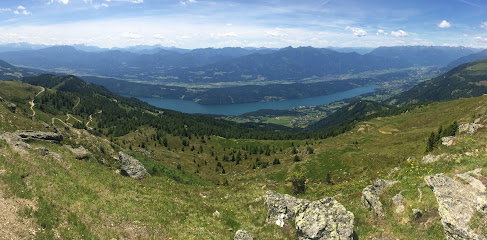
Schloss Heroldeck
Discover the enchanting Schloss Heroldeck, a castle steeped in history, set against the breathtaking backdrop of Lake Millstatt and the Austrian Alps.
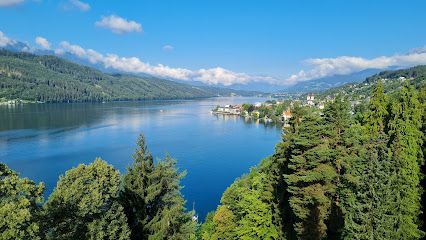
Aussichtsplattform Slow Trail Zwergsee
Discover the stunning views and serene beauty at the Aussichtsplattform Slow Trail Zwergsee in Millstatt, Austria, a vital destination for nature lovers and adventure seekers.
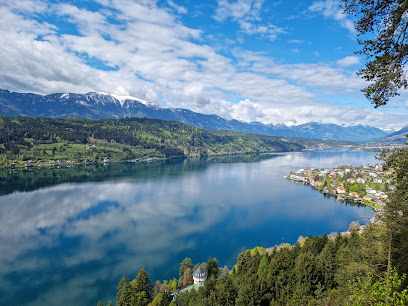
Schillerpark
Discover the tranquil beauty of Schillerpark in Millstatt, where lush greenery and stunning lake views create the perfect escape for nature lovers.
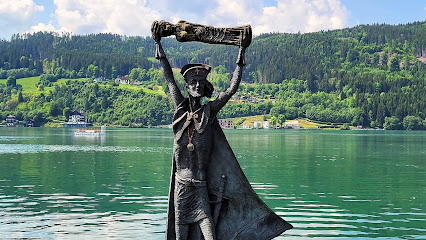
Seepark Millstatt
Discover the serene beauty of Seepark Millstatt, a picturesque park on Lake Millstatt, ideal for relaxation and outdoor activities.
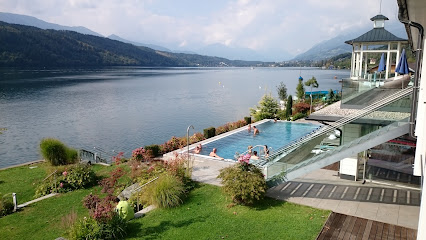
Südufer Millstättersee
Explore Südufer Millstättersee, a stunning lakeside gem in Austria, perfect for nature lovers and adventure seekers alike.
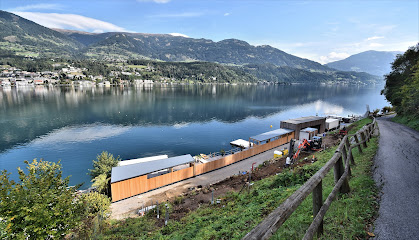
Unmissable attractions to see
Planica Nordic Centre
Explore the stunning vistas and thrilling sports at Planica Nordic Centre, Slovenia’s ultimate destination for winter and summer adventures.
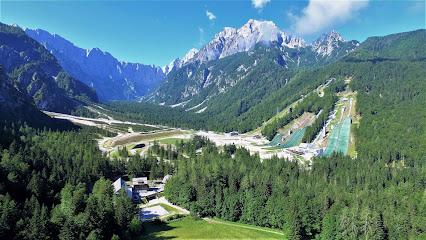
Alpen Wildpark Feld am See
Explore Alpen Wildpark Feld am See, a beautiful blend of wildlife, education, and family fun in the heart of Austria's stunning landscapes.
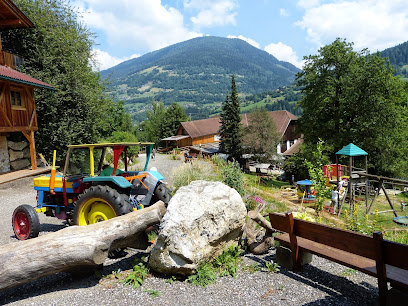
Kap 4613 - Die Pyramide und Terrasse im Millstätter See
Discover Kap 4613 - a culinary gem by Millstätter See, offering self-service delights, scenic views, and a vibrant lakeside ambiance for tourists.
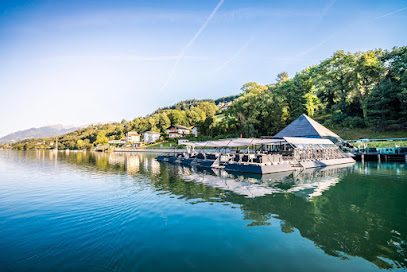
Burg Sommeregg
Explore the rich history and stunning landscapes at Burg Sommeregg, a captivating museum and event venue in the heart of Austria's scenic Seeboden.
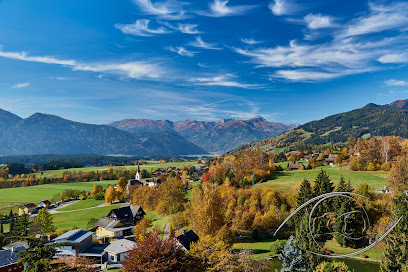
Laghi di Fusine
Discover the breathtaking beauty of Laghi di Fusine, where crystal-clear lakes meet majestic mountains in a serene alpine paradise.
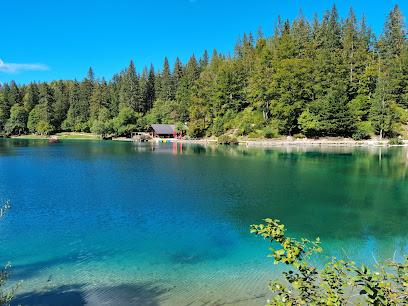
Drautalperle
Experience the ultimate relaxation and wellness at Drautalperle in Spittal an der Drau, where indoor pools and saunas meet the beauty of the Austrian Alps.
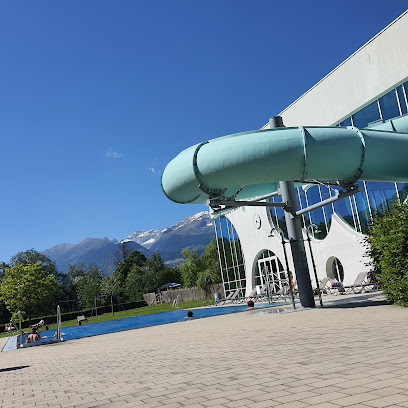
Donkey Park Maltatal
Discover the joy of interacting with friendly donkeys in the scenic Maltatal valley at Donkey Park Maltatal, a unique animal park experience.
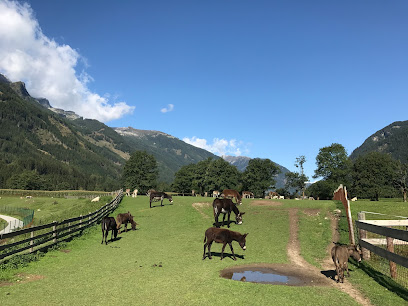
Lammersdorfer Hütte
Discover tranquility and adventure at Lammersdorfer Hütte, a charming mountain cabin perfect for hiking and nature lovers in the heart of Austria.
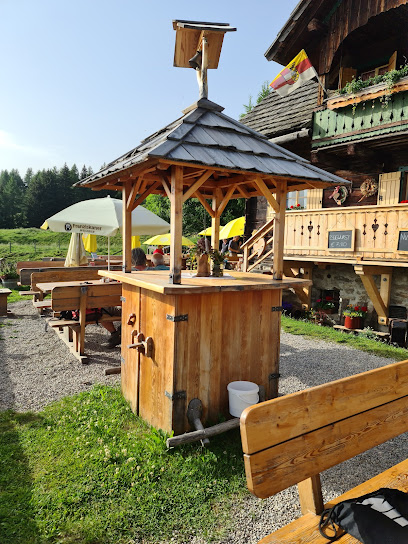
Bonsaimuseum
Explore the tranquil Bonsaimuseum in Seeboden, where nature and art intertwine through the delicate craft of bonsai cultivation.
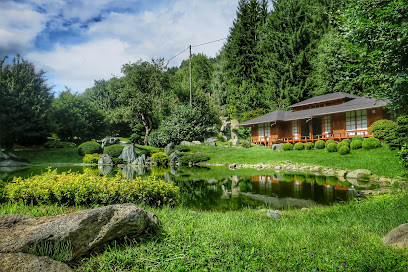
Granatium
Explore the fascinating world of garnets at Granatium, a unique museum in Radenthein, Austria, where geology meets history in stunning exhibits.
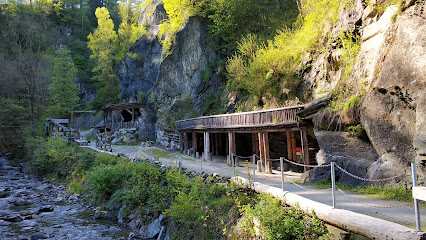
Stadtpark
Explore the lush greenery and peaceful pathways of Stadtpark, a tranquil oasis in Spittal an der Drau, where nature meets relaxation.
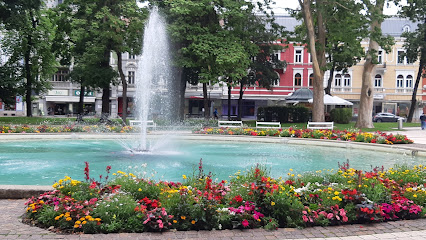
Foltermuseum
Explore the chilling history of torture devices at Foltermuseum in Seeboden, a unique tourist attraction combining education and intrigue.
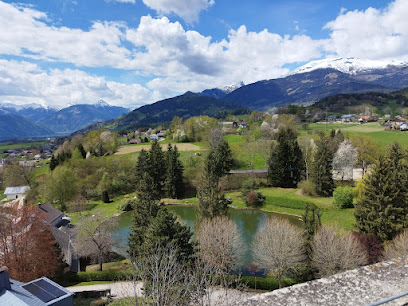
Alexanderhütte
Explore the breathtaking Austrian Alps at Alexanderhütte, where culinary delights and scenic hiking trails await every traveler.
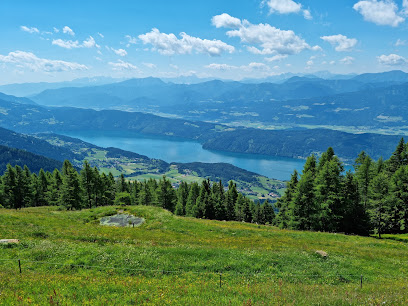
Granattor
Explore the breathtaking beauty of Granattor in Millstatt, Austria, a top hiking destination with stunning views and rich natural diversity.
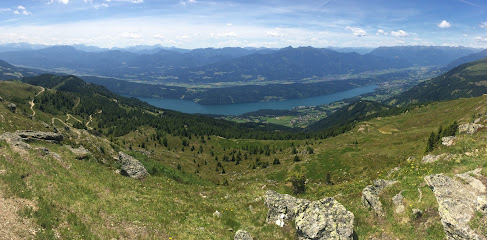
Millstätter Hütte
Explore the scenic beauty and outdoor adventures at Millstätter Hütte, a charming mountain cabin in the heart of the Austrian Alps.
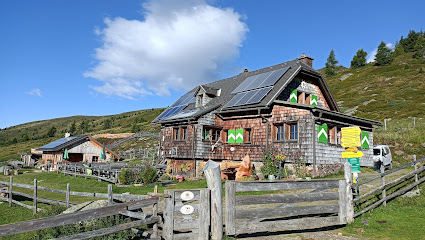
Essential places to dine
Kap 4613 - Die Pyramide und Terrasse im Millstätter See
Discover culinary delights at Kap 4613 by Millstätter See - a self-service restaurant offering brunches and dessert buffets amidst stunning natural beauty.
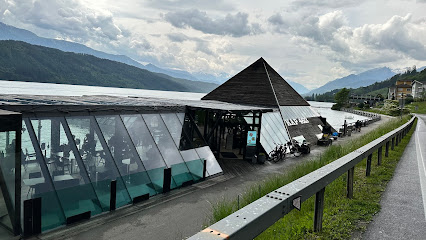
Restaurant Postwirt
Discover authentic Austrian flavors at Restaurant Postwirt in Seeboden, where local ingredients meet traditional recipes for an unforgettable dining experience.
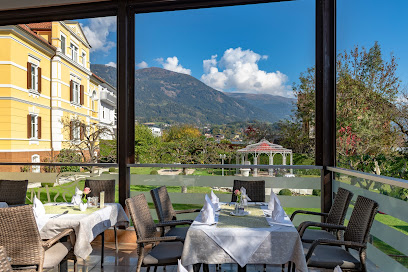
Lindenhof Wirtshaus und Biergarten
Discover authentic Austrian flavors at Lindenhof Wirtshaus und Biergarten in Millstatt – where tradition meets culinary excellence.
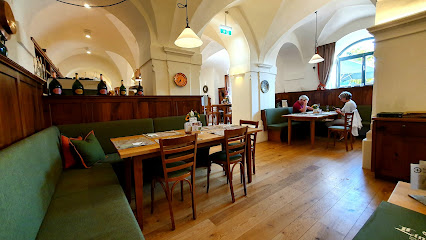
Pizzeria-Restaurant Al Lago
Experience authentic Italian cuisine at Pizzeria-Restaurant Al Lago in Seeboden - where every dish tells a delicious story.
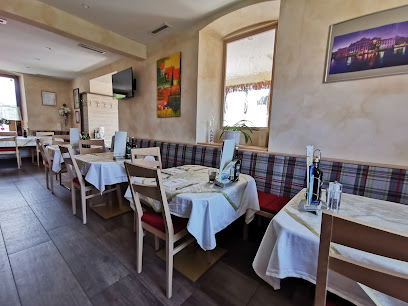
Bachlwirt
Experience authentic Austrian cuisine at Bachlwirt in Seeboden - where tradition meets taste in a cozy setting.
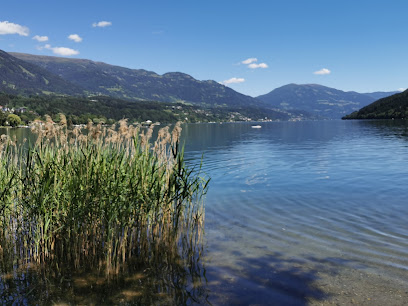
Restaurant Ertl
Experience authentic Austrian flavors at Restaurant Ertl along Seepromenade – a must-visit dining destination by the lake.
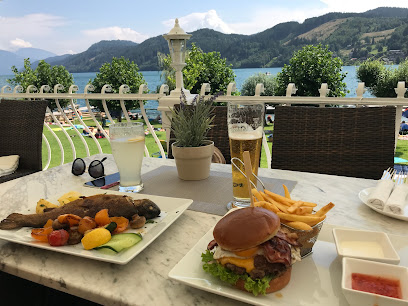
Hotel See-Villa
Discover unparalleled luxury at Hotel See-Villa – where elegance meets nature by Lake Millstatt.

Butcher's Steak Haus
Discover Butcher's Steak Haus in Millstatt: where exquisite steaks meet warm hospitality for an unforgettable dining experience.
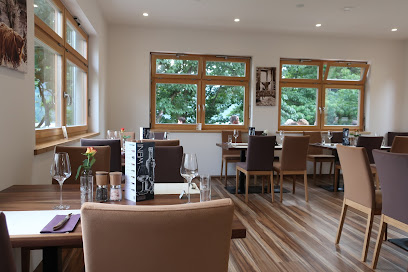
None's Seeboden
Discover authentic Austrian flavors at None's Seeboden - a cozy restaurant renowned for its delicious pizzas and warm ambiance.
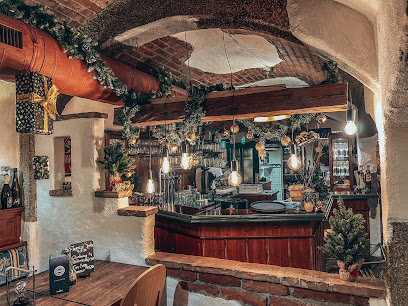
Restaurant Matzelsdorfer Hof
Experience authentic Austrian cuisine at Restaurant Matzelsdorfer Hof in scenic Millstatt, where delightful flavors meet stunning landscapes.
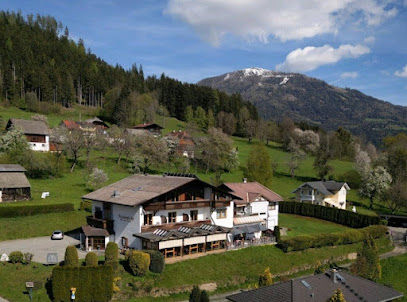
Seerestaurant Messner
Experience delightful Austrian cuisine at Seerestaurant Messner with stunning lake views in Döbriach.
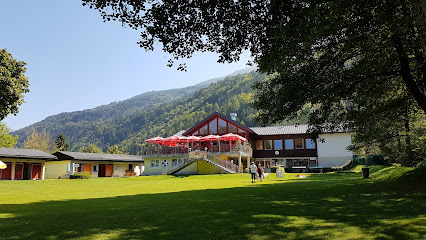
Café-Restaurant L'ONDA
Experience exquisite dining at Café-Restaurant L'ONDA by Lake Millstatt - where local flavors meet breathtaking views.
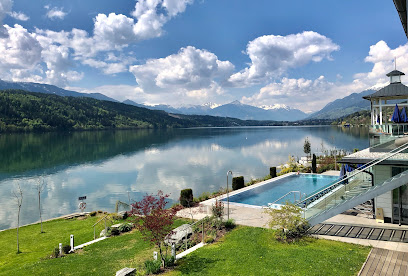
Gästehaus Bärwald - Restaurant Bärwald
Experience authentic Austrian hospitality at Gästehaus Bärwald - where comfort meets exquisite dining amidst breathtaking landscapes.
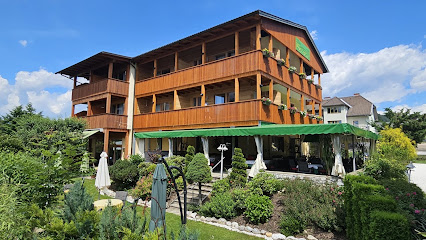
LUX am See
Experience culinary excellence at LUX am See while enjoying breathtaking views of Lake Millstatt in Austria's picturesque landscape.
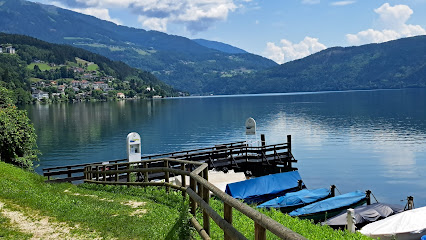
Greisslerei Millstatt
Experience authentic Austrian cuisine at Greisslerei Millstatt – where local flavors meet warm hospitality in a stunning lakeside setting.
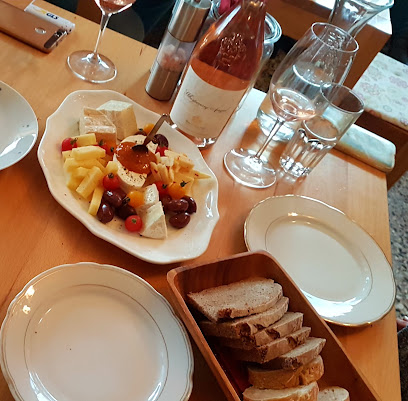
Markets, malls and hidden boutiques
Stadtpark Center Spittal
Experience the vibrant shopping scene at Stadtpark Center Spittal, where diverse shops and delightful dining create a perfect day out for every traveler.
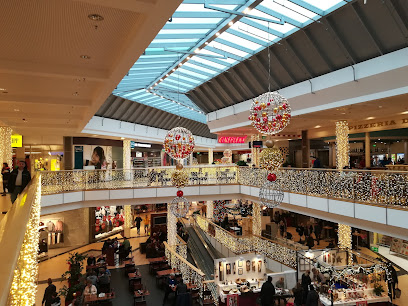
Kärnten Badehaus Millstätter See
Experience ultimate relaxation at Kärnten Badehaus Millstätter See, a premier wellness center offering massages and saunas amid stunning natural beauty.
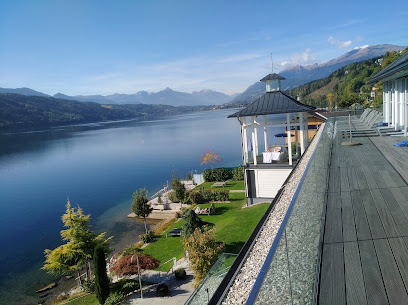
Alexanderhütte
Experience the perfect blend of dining and nature at Alexanderhütte, a charming mountain cabin in Millstatt, Austria.
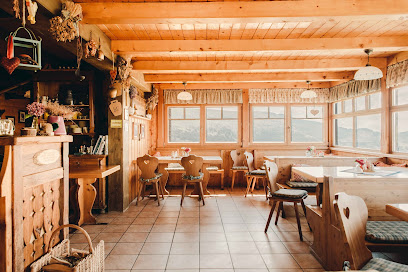
Restaurant Ertl
Discover Restaurant Ertl, where culinary delights meet stunning lakeside views in Seeboden, Austria.
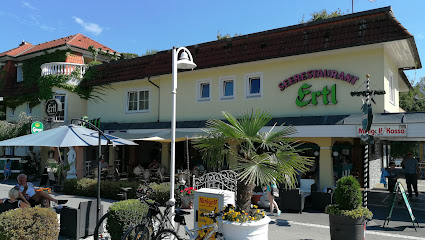
Granattor
Discover Granattor: A breathtaking hiking area in the Austrian Alps, perfect for nature lovers and adventure seekers alike.
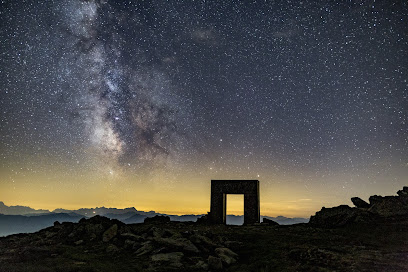
BILLA
Discover the best of Millstatt at BILLA, your go-to supermarket for fresh produce, local specialties, and everyday essentials.
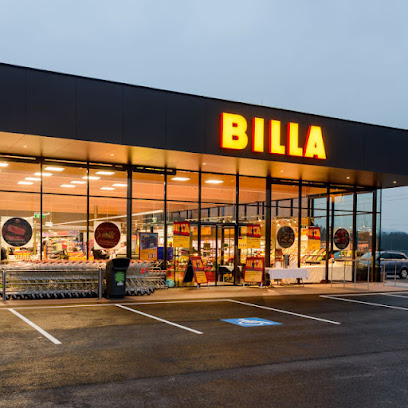
Fischimbiss im Garten
Experience the finest seafood in Millstatt at Fischimbiss im Garten, where fresh catches and local flavors come together in a delightful dining atmosphere.
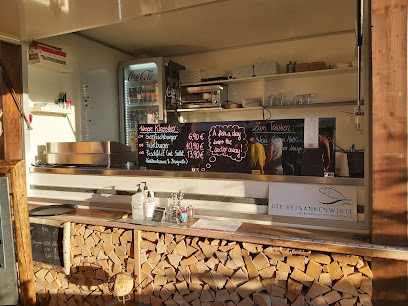
Kino Cafe Millstatt
Discover the unique fusion of sweet delights and cinematic experiences at Kino Cafe Millstatt, where every visit is a treat for the senses.
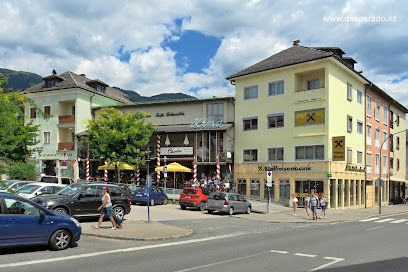
RABATTZ Fachmarkt für Spiel + Freizeit
Discover RABATTZ in Spittal an der Drau, the ultimate destination for board games, card games, and family fun in a vibrant setting.
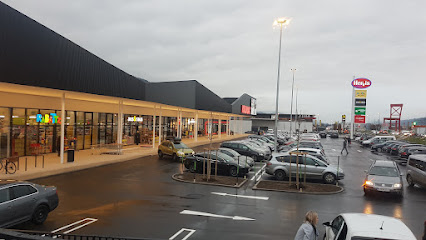
Müller
Discover Müller in Spittal an der Drau: A diverse shopping haven featuring books, toys, and more in a charming Austrian town.
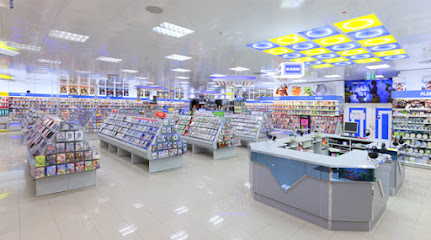
KUNSTradln Café & Lounge
Discover the delightful flavors of KUNSTradln Café & Lounge in Millstatt, where fruit parlor meets café charm for a unique dining experience.
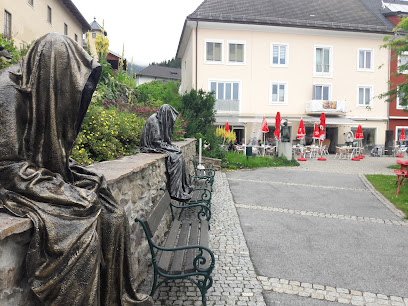
Aussichtsplattform Slow Trail Zwergsee
Experience stunning vistas and serene nature at Aussichtsplattform Slow Trail Zwergsee, a must-visit observation deck in Millstatt, Austria.
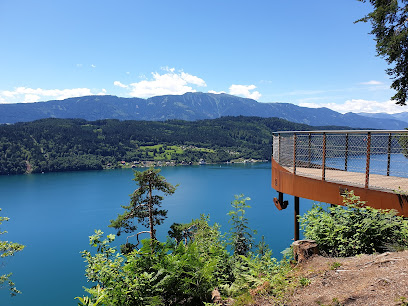
Mountainbike-Station Thomas Graf
Discover the best cycling experience at Mountainbike-Station Thomas Graf in Millstatt, Austria, offering top-notch rentals and expert local insights.
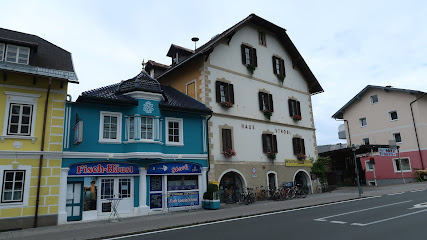
ADEG Supermarkt
Experience the taste of Austria at ADEG Supermarkt, your local grocery treasure in Döbriach, offering fresh produce and regional specialties.
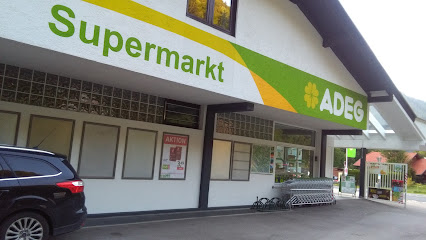
Bikeshop Seeboden
Discover the beauty of Seeboden's landscapes at Bikeshop Seeboden, where cycling adventures await for every enthusiast.
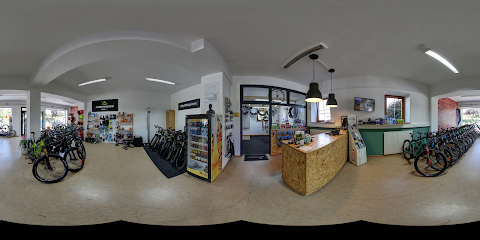
Essential bars & hidden hideouts
Kap 4613 - Die Pyramide und Terrasse im Millstätter See
Experience the culinary magic of Kap 4613 at Millstätter See - a self-service restaurant with stunning lake views and delicious buffet options.
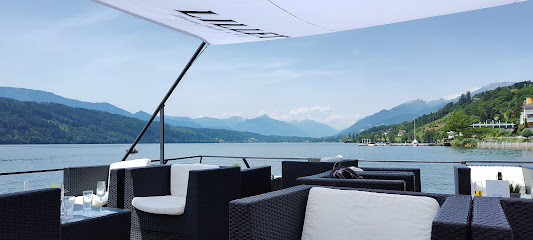
Lindenhof Wirtshaus und Biergarten
Experience the heart of Austrian cuisine at Lindenhof Wirtshaus und Biergarten in Millstatt, where tradition meets taste in a stunning lakeside setting.
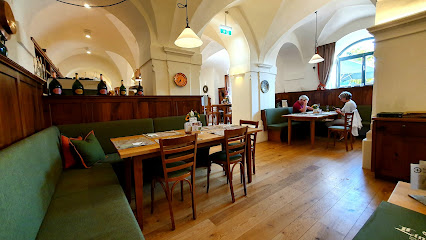
Alexanderhütte
Discover the charm of Alexanderhütte: a mountain inn offering delicious local cheeses, cozy accommodations, and breathtaking hiking trails in Millstatt.
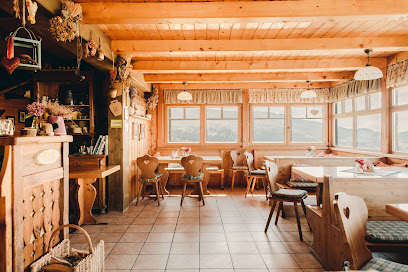
Restaurant Ertl
Experience the best of Austrian cuisine at Restaurant Ertl, where stunning views and delightful dishes create unforgettable moments.
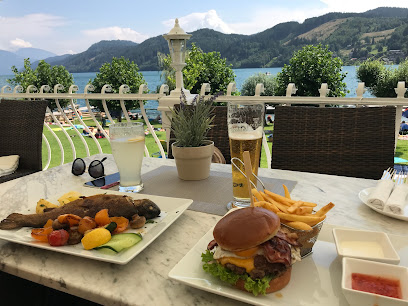
Charly's Seelounge
Discover the tranquil charm of Charly's Seelounge in Döbriach, where breathtaking lake views meet delightful refreshments in a cozy ambiance.
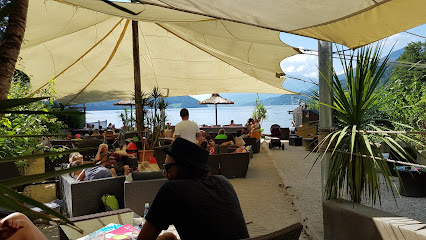
Hotel See-Villa
Discover the exquisite flavors and serene ambiance of Hotel See-Villa, a fine dining gem by Lake Millstatt, perfect for culinary enthusiasts.

Buschenschenke Höfler
Experience the heart of Austrian wine culture at Buschenschenke Höfler, a charming wine bar in Millstatt with breathtaking views.
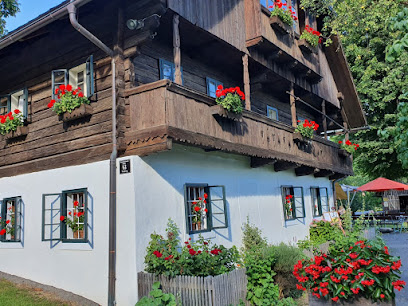
Butcher's Steak Haus
Experience the finest steaks and a warm atmosphere at Butcher's Steak Haus in Millstatt, the ultimate destination for meat lovers.
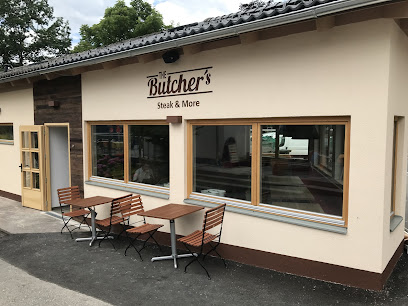
Restaurant Matzelsdorfer Hof
Discover the flavors of Austria at Restaurant Matzelsdorfer Hof, where local ingredients meet stunning alpine views in Millstatt.
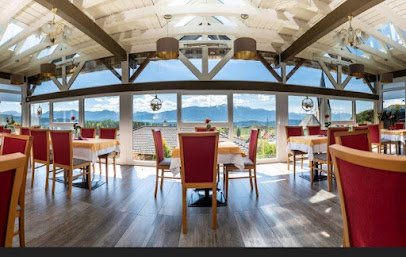
Café-Restaurant L'ONDA
Discover the culinary delights of Café-Restaurant L'ONDA in Millstatt, where local flavors meet stunning lake views for an unforgettable dining experience.
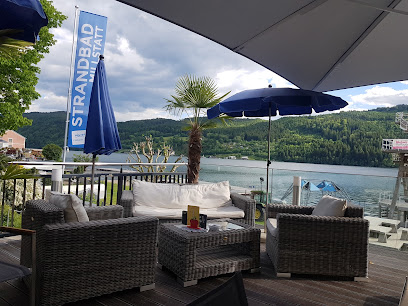
Kino Cafe Millstatt
Discover the sweet side of Millstatt at Kino Cafe, where delicious fruit creations and cinematic magic come together for a memorable experience.
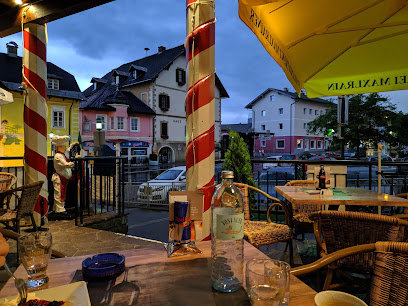
Seewirt - Haifischbar Fam Winkler
Experience the charm of Seewirt - Haifischbar, a lakeside bar in Seeboden with delicious local cuisine and stunning views of Lake Millstatt.
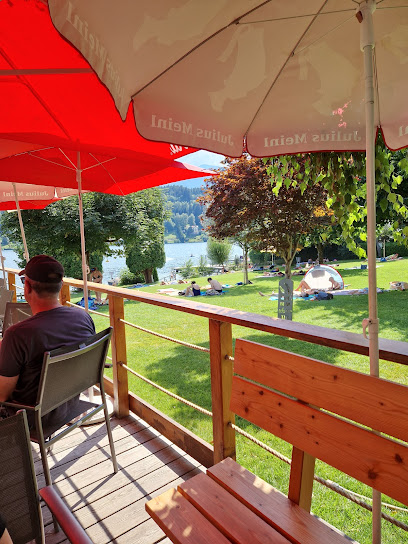
LUX am See
Discover the perfect blend of relaxation and culinary delight at LUX am See, a charming bistro and bar by the scenic Lake Millstatt.
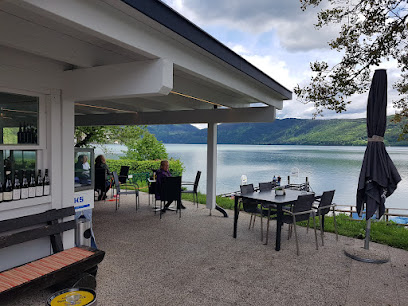
KUNSTradln Café & Lounge
Discover the charming KUNSTradln Café & Lounge in Millstatt, a delightful spot for breakfast, cakes, and refreshing treats in a cozy atmosphere.
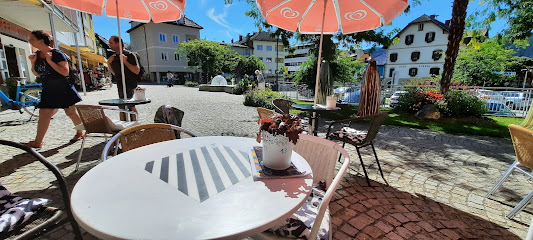
Local Phrases about Millstätter See
-
- HelloServus
[ser-voos] - GoodbyeAuf Wiedersehen
[owf vee-der-zay-en] - YesJa
[yah] - NoNein
[nine] - Please/You're welcomeBitte
[bit-te] - Thank youDanke
[dahn-keh] - Excuse me/SorryEntschuldigung
[ent-shool-di-gung] - How are you?Wie geht's?
[vee gayts] - Fine. And you?Gut. Und dir?
[goot oont deer] - Do you speak English?Sprechen Sie Englisch?
[shpre-khen zee eng-lish] - I don't understandIch verstehe nicht
[ikh fer-shtay-eh nikht]
- HelloServus
-
- I'd like to see the menu, pleaseIch hätte gerne die Speisekarte, bitte
[ikh hah-teh gair-neh dee shpy-suh-kahr-teh, bit-teh] - I don't eat meatIch esse kein Fleisch
[ikh ess-eh kine fly-sh] - Cheers!Prost!
[prohst] - I would like to pay, pleaseIch möchte bitte zahlen
[ikh mursh-teh bit-teh tsah-len]
- I'd like to see the menu, pleaseIch hätte gerne die Speisekarte, bitte
-
- Help!Hilfe!
[hil-feh] - Go away!Gehen Sie weg!
[gey-en zee vehg] - Call the Police!Rufen Sie die Polizei!
[roo-fen zee dee poh-lee-tsy] - Call a doctor!Rufen Sie einen Arzt!
[roo-fen zee i-nen artsht] - I'm lostIch habe mich verirrt
[ikh hah-beh meekh feh-reet] - I'm illIch bin krank
[ikh been krahnk]
- Help!Hilfe!
-
- I'd like to buy...Ich möchte kaufen...
[ikh mursh-teh kah-oo-fen] - I'm just lookingIch schaue mich nur um
[ikh sh-ow-eh meekh noor oom] - How much is it?Wie viel kostet das?
[vee feel koh-stet dahs] - That's too expensiveDas ist zu teuer
[dahs ist tsoo toy-er] - Can you lower the price?Können Sie den Preis senken?
[ker-nen zee den prees zehn-ken]
- I'd like to buy...Ich möchte kaufen...
-
- What time is it?Wie spät ist es?
[vee shpayt ist es] - It's one o'clockEs ist ein Uhr
[es ist iyn oor] - Half past (10)Halb (zehn)
[halb (tsayn)] - MorningMorgen
[mor-gen] - AfternoonNachmittag
[nahkh-mit-tahg] - EveningAbend
[ah-bent] - YesterdayGestern
[gess-tern] - TodayHeute
[hoy-teh] - TomorrowMorgen
[mor-gen] - 1eins
[iyns] - 2zwei
[tsvai] - 3drei
[dry] - 4vier
[feer] - 5fünf
[foonf] - 6sechs
[zehks] - 7sieben
[zee-ben] - 8acht
[ahkht] - 9neun
[noyn] - 10zehn
[tsayn]
- What time is it?Wie spät ist es?
-
- Where's a/the...?Wo ist ein/der...?
[voh ist iyn/dehr] - What's the address?Was ist die Adresse?
[vahs ist dee ah-dreh-suh] - Can you show me (on the map)?Können Sie mir das zeigen (auf der Karte)?
[ker-nen zee meer dahs tsee-gen (owf dehr kahr-teh)] - When's the next (bus)?Wann kommt der nächste (Bus)?
[vahn kohmt dehr nekhs-teh (boos)] - A ticket (to ....)Eine Fahrkarte (nach ....)
[iyn-eh fahr-kahr-teh (nahkh ....)]
- Where's a/the...?Wo ist ein/der...?
History of Millstätter See
-
Millstätter See, nestled in the Austrian Alps, has a rich history dating back to prehistoric times. Archaeological evidence suggests that the area around the lake was settled as early as the Neolithic period. During Roman times, the region was part of the province of Noricum. The Romans appreciated the strategic and scenic value of Millstätter See, leaving behind remnants of their presence, including roads and small settlements.
-
The establishment of the Benedictine Millstatt Abbey in the late 11th century marked a significant chapter in the history of Millstätter See. Founded in 1070, the abbey became a center of spiritual life and learning. It played a crucial role in the Christianization of the region and in the development of agriculture and viticulture. The abbey's Romanesque architecture, including the church and cloisters, stands as a testament to its historical importance.
-
During the Habsburg reign, Millstätter See flourished as a favored retreat for the aristocracy. The picturesque lake and its surrounding landscapes offered a serene escape from the bustling cities. Many noble families built summer residences and villas along the shores of the lake. This period also saw the construction of the Millstatt Castle in the 16th century, which further solidified the area's appeal as a luxurious getaway.
-
The early 20th century brought a significant transformation to Millstätter See as it became a popular destination for tourists. The advent of modern transportation made the lake more accessible, and its natural beauty attracted visitors from across Europe. The region developed a robust infrastructure to support tourism, including hotels, spas, and recreational facilities. This era marked the beginning of Millstätter See's reputation as a premier destination for nature lovers and outdoor enthusiasts.
-
Millstätter See is not only known for its natural beauty but also for its vibrant cultural scene. The region hosts several annual festivals that celebrate local traditions and heritage. The Millstatt Music Weeks, for example, is a renowned classical music festival that attracts performers and audiences from around the world. Traditional events like the Millstatt Lake Festival showcase local crafts, cuisine, and folklore, preserving the cultural identity of the area.
Millstätter See Essentials
-
Millstätter See is located in Carinthia, Austria. The nearest major airport is Klagenfurt Airport, approximately 70 kilometers away. From the airport, you can rent a car, take a taxi, or use public transportation such as buses and trains to reach Millstätter See. Alternatively, you can fly into Salzburg Airport, which is about 180 kilometers away, and then use similar transportation options.
-
Public transportation around Millstätter See is reliable and includes buses that connect the surrounding towns and villages. For more flexibility, renting a car is a convenient option and allows you to explore the scenic roads around the lake. Bicycles are also a popular mode of transport, and several rental shops are available. Boat tours are another enjoyable way to get around and see the lake from a different perspective.
-
The official currency in Austria is the Euro (EUR). Credit cards are widely accepted in hotels, restaurants, and larger shops. However, it is advisable to carry some cash for smaller establishments, markets, and rural areas. ATMs are available in most towns around Millstätter See, making it easy to withdraw cash when necessary.
-
Millstätter See is generally a very safe destination for tourists. Standard travel precautions should be taken, such as keeping an eye on your belongings in crowded places and avoiding isolated areas at night. There are no specific neighborhoods with high crime rates targeting tourists, but staying aware of your surroundings is always recommended.
-
In case of an emergency, dial 112 for immediate assistance. The local police station and medical facilities are available in nearby towns such as Spittal an der Drau. It is advisable to have travel insurance that covers medical emergencies. Pharmacies are available in the area for minor health issues, and many pharmacists speak English.
-
Fashion: Do dress comfortably and appropriately for outdoor activities. Avoid overly casual or revealing clothing in more formal settings. Religion: Do respect local customs and traditions. When visiting churches, dress modestly and speak quietly. Public Transport: Do be courteous and offer your seat to elderly passengers. Don't eat or drink on public transport. Greetings: Do greet people with a friendly 'Grüß Gott' or a simple handshake. Eating & Drinking: Do try local dishes and wines. Don't rush meals; dining is often a leisurely and social experience.
-
To experience Millstätter See like a local, consider visiting during the shoulder seasons of spring and fall when the area is less crowded. Participate in local events and festivals to immerse yourself in the culture. Renting a bicycle to explore the lakeside trails is a favorite activity among locals. Don't miss trying the regional specialties, such as Kärntner Kasnudeln (Carinthian cheese noodles) and fresh fish from the lake.
Nearby Cities to Millstätter See
-
Things To Do in Bad Gastein
-
Things To Do in Klagenfurt
-
Things To Do in Bled
-
Things To Do in Bohinj
-
Things To Do in Zell am See
-
Things To Do in Hallstatt
-
Things To Do in Škofja Loka
-
Things To Do in Nova Gorica
-
Things To Do in Kamnik
-
Things To Do in Ljubljana
-
Things To Do in Kitzbühel
-
Things To Do in Salzburg
-
Things To Do in Sežana
-
Things To Do in Postojna
-
Things To Do in Velenje









